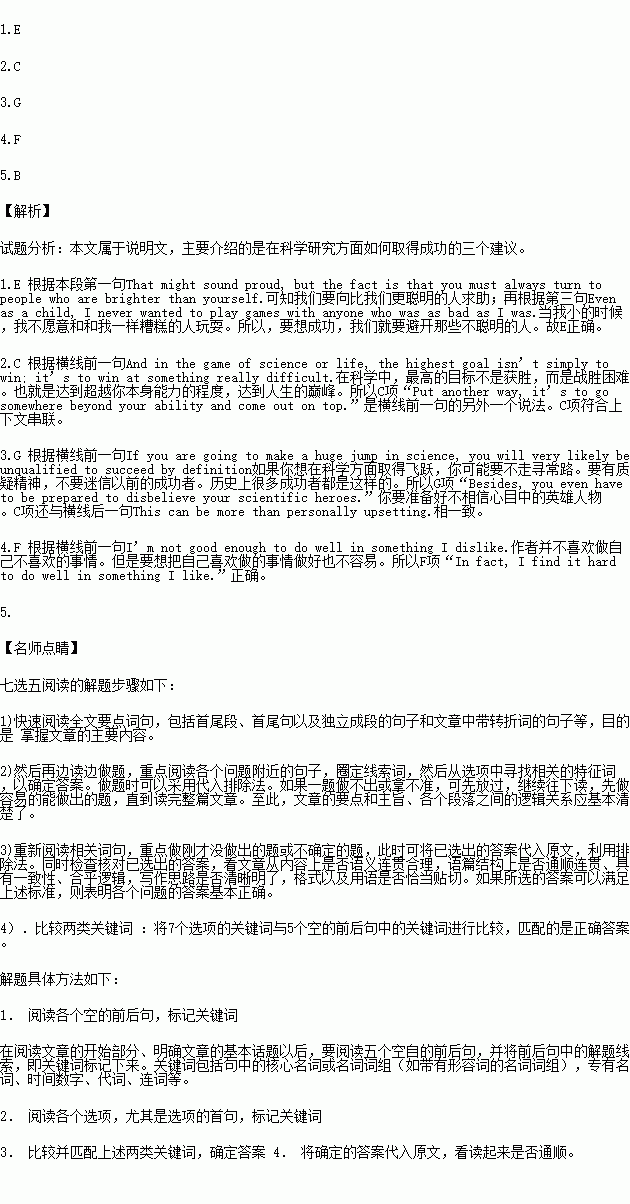题目内容
根据短文内容,从短文后的选项中选出能填入空白处的最佳选项。选项中有两项为多余选项。
How to Succeed in Science
To succeed in science, you need a lot more than luck. In my view, you have to combine intelligence with a willingness not to follow conventions when they block your path forward. Thus, these have come to be my rules for success.
1.
That might sound proud, but the fact is that you must always turn to people who are brighter than yourself. It’s like playing any game. Even as a child, I never wanted to play games with anyone who was as bad as I was. If you win, it gives you no pleasure. And in the game of science or life, the highest goal isn’t simply to win; it’s to win at something really difficult. 2.
2. Take risks
To make a huge success, a scientist has to be prepared to get into deep trouble. If you are going to make a huge jump in science, you will very likely be unqualified to succeed by definition. 3. This can be more than personally upsetting.
3. Never do anything that bores you.
My experience in science is that someone is always telling you to do things, and then leave you alone. I’m not good enough to do well in something I dislike. 4.
It’s very hard to succeed if you don’t want to be with other scientists — you have to go to key meetings where you spot key facts that would have escaped you. And you have to chat with your competitors, even if you find them objectionable.
So my final rule is: 5.
A. Meet challenges with great courage.
B. If you can’t stand to be with your real peers, get out of science.
C. Put another way, it’s to go somewhere beyond your ability and come out on top.
D. Be sure you always have someone to save you from a deep mess.
E. Avoid foolish people.
F. In fact, I find it hard to do well in something I like.
G. Besides, you even have to be prepared to disbelieve your scientific heroes.
 全优考典单元检测卷及归类总复习系列答案
全优考典单元检测卷及归类总复习系列答案 品学双优卷系列答案
品学双优卷系列答案 小学期末冲刺100分系列答案
小学期末冲刺100分系列答案
